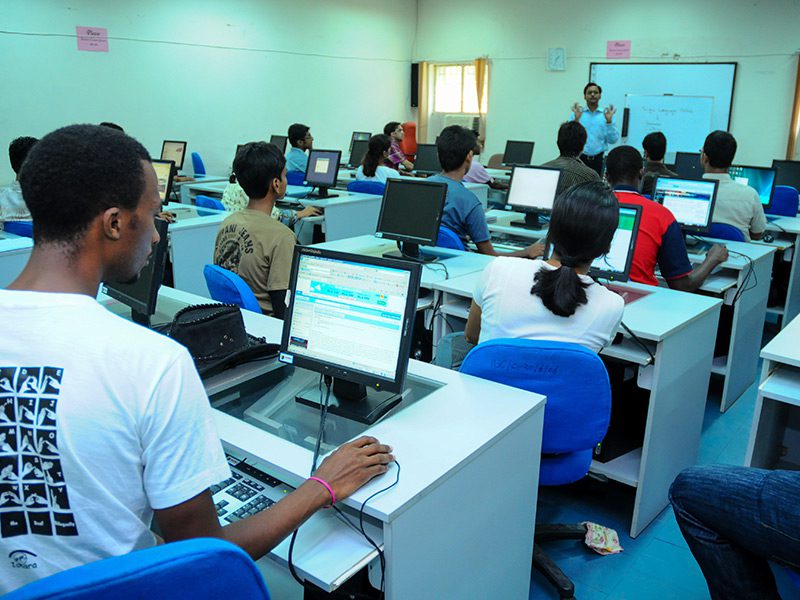The Skills and Employability Landscape in India
Current Employability Statistics
According to the India Skills Report 2024, approximately 51.25% of Indian youth are deemed employable, marking an improvement from previous years. This indicates that nearly half of graduates lack the necessary skills to meet current job market demands. The report also highlights that Telangana leads in employable talent concentration among 18-21-year-olds, with an impressive 85.45%.
Challenges Contributing to the Skills Gap
Several factors contribute to the persistent skills gap in India:
Educational Mismatch: Traditional education emphasizes theoretical knowledge over practical application, leaving graduates unprepared for industry roles.
Technological Advancements: Rapid technological changes outpace curriculum updates, resulting in a workforce unfamiliar with current tools and technologies.
Regional Disparities: Rural and semi-urban areas often lack access to quality training facilities, exacerbating the employability divide.
Soft Skills Deficiency: Employers frequently report a lack of communication, teamwork, and problem-solving skills among candidates.
The Role of CSR in Skill Development
Recognizing these challenges, many corporations have integrated skill development into their CSR strategies, aiming to enhance employability skills and create a job-ready workforce.
Centum Foundation’s Initiatives
Centum Foundation has been instrumental in implementing impactful CSR programs focused on skills and employability. Some key projects include:
Mahindra & Mahindra – Elevating Underprivileged Women into Healthcare Roles
Focus: Training women from underserved communities as General Duty Assistants to address critical needs in the healthcare sector.
Beneficiaries: 20,000+ economically weaker women.
Location: Pan India.
Impact of CSR-Driven Skill Development
CSR initiatives have led to measurable improvements in the employability landscape:
Increased Employment Opportunities: CSR-driven training programs have significantly improved job placement rates, fostering economic growth.
Enhanced Workforce Quality: Industries benefit from a pool of skilled workers, reducing recruitment challenges and improving productivity.
Empowerment of Marginalized Groups: Programs targeting women, differently-abled individuals, and rural youth promote inclusive growth.
Government Initiatives Complementing CSR Efforts
The Indian government has launched several schemes to complement CSR efforts in skill development:
Pradhan Mantri Kaushal Vikas Yojana (PMKVY): Provides industry-relevant skill training to youth, enhancing employability.
Skill India Digital Hub (SIDH): Offers free courses and skill development schemes in IT, digital marketing, and AI.
AICTE’s Skill Development Cell: Enhances employment and self-employment opportunities through registered training facilitators.
The Path Forward: Enhancing CSR Impact on Employability
To maximize the impact of CSR initiatives on bridging the skills gap, corporations should adopt the following strategies:
Alignment with Industry Needs: Corporations and educational institutions must collaborate to update training modules and curricula.
Focus on Emerging Technologies: Training in AI, Machine Learning, and Renewable Energy can prepare the workforce for future demands.
Monitoring and Evaluation: Robust assessment frameworks should be implemented to measure CSR program effectiveness.
Scalability of Programs: Successful CSR models should be expanded to different regions and sectors to ensure wider reach and impact.
Conclusion
Bridging the skills gap in India requires a multifaceted approach, with CSR initiatives playing a pivotal role. By focusing on skill development, corporations not only fulfill their social responsibilities but also contribute to building a competent and competitive workforce. Collaborative efforts between the government, industry, and non-profits can accelerate the impact of these programs, ensuring long-term economic growth and sustainability.
As the future of work evolves, lifelong learning and adaptability will be key drivers of success. CSR programs integrating digital literacy, vocational training, and entrepreneurship development will not only create job-ready professionals but also empower individuals to become self-reliant contributors to the economy. By investing in skills and employability, India can move closer to achieving its vision of becoming a global powerhouse of skilled talent.
Discover how Centum Foundation’s CSR initiatives are shaping a future-ready workforce by empowering individuals with industry-relevant skills and employability training.


